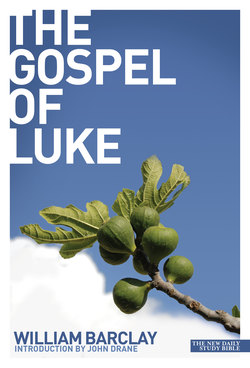Читать книгу Gospel of Luke - William Barclay - Страница 37
На сайте Литреса книга снята с продажи.
ОглавлениеTHE INSISTENT CROWDS
Luke 4:40–4
When the sun was setting all who had friends who were ill with all kinds of sicknesses brought them to Jesus; and he laid his hands upon each one of them and cured them. Out of many there came demons, shouting out and saying, ‘You are the Son of God.’ And he rebuked them and would not allow them to speak, because they knew that he was the Anointed One. When day came, he went out and went to a desert place; and the crowds kept looking for him and they tried to restrain him so that he would not go away from them; but he said to them, ‘I must tell the good news of the kingdom of God to other towns too, because that is what I was sent to do.’
(1) Early in the morning Jesus went out to be alone. He was able to meet the insistent needs of others only because he first made time to be with God. Once, in the First World War, a staff conference was due to begin. All were present except Marshal Foch, the commander-in-chief. An officer who knew him well said, ‘I think I know where we may find him.’ He led them round to a ruined chapel close beside General Headquarters and there, before the shattered altar, the great soldier was kneeling in prayer. Before he met his men he must first meet God.
(2) There is no word of complaint or resentment when Jesus’ privacy was invaded by the crowds. Prayer is great but in the last analysis human need is greater. Florence Allshorn, the great missionary teacher, used to run a training college for missionaries. She knew human nature and she had little time for people who suddenly discovered that their quiet hour was due just when the dishes were to be washed! Pray we must; but prayer must never be an escape from reality. Prayer cannot preserve us from the insistent cry of human need. It must prepare us for it; and sometimes we will need to rise from our knees too soon and get to work – even when we do not want to.
(3) Jesus would not let the demons speak. Over and over again we get on Jesus’ lips this injunction to silence. Why? For this very good reason – the Jews had their own popular ideas of the Messiah. To many of them the Messiah was to be a conquering king who would set his foot upon the eagle’s neck and sweep the Romans from Palestine. Palestine was in a volatile state. Rebellion was always just below the surface and often broke out. Jesus knew that if the report went out that he was the Messiah the revolutionaries would be ready to flare up. Before people could call him Messiah, he had to teach them that Messiah meant not a conquering king but a suffering servant. His injunctions to silence were given because people did not yet know what Messiahship meant, and if they started out with the wrong ideas death and destruction would surely follow.
(4) Here is the first mention of the kingdom of God in Luke’s gospel. Jesus came preaching the kingdom of God (Mark 1:15). That was the essence of his message. What did he mean by the kingdom of God? For Jesus the kingdom was three things at the same time.
(a) It was past. Abraham, Isaac and Jacob were in the kingdom and they had lived centuries ago (Luke 13:28).
(b) It was present. ‘The kingdom’, he said, ‘is within you, or among you’ (Luke 17:21).
(c) It was future. It was something which God was still to give and which must be constantly prayed for.
How can the kingdom be all these things at the same time? Turn to the Lord’s Prayer. There are two petitions in it side by side. Your kingdom come; Your will be done in earth as it is in heaven (Matthew 6:10). Now, as any verse of the Psalms will show, the Hebrew language has a way of saying things twice; and always the second way explains, or develops, or amplifies the first way. Put these two phrases together – Your kingdom come; Your will be done in earth as it is in heaven. The second explains the first; therefore, the kingdom of God is a society upon earth where God’s will is as perfectly done as it is in heaven. If anyone in the past has perfectly done God’s will, that person is in the kingdom; if anyone does it now, that person is in the kingdom; but the day when everyone will do that will is still far distant, therefore the consummation is still to come; and so the kingdom is past and present and future all at the same time.
We do that will spasmodically, sometimes obeying, sometimes disobeying. Only Jesus always did it perfectly. That is why he is the foundation and the incarnation of the kingdom. He came to make it possible for us all to do the same. To do God’s will is to be a citizen of the kingdom of God. We may well pray – ‘Lord, bring in your kingdom, beginning with me.’
